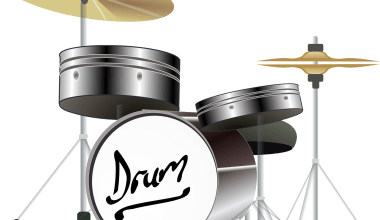If you’re an artist or a musician, you’ve probably come across the term “EPK” more than once. But what exactly is an EPK in music? Let’s dive into this essential tool and explore why every musician needs one.
Understanding the Basics of an EPK
An EPK, or Electronic Press Kit, is like your professional resume in the music industry. Think of it as your digital portfolio. It provides all the information that journalists, booking agents, promoters, and other music professionals might need to know about you or your band. An EPK makes it easy for people to learn about your music, achievements, and brand, all in one place.
While a traditional press kit used to come in a physical folder filled with photos, CDs, and bios, the modern EPK lives online. It’s designed to be accessible and shareable, helping you promote your music in today’s digital world.
Why Do Musicians Need an EPK?
In today’s music industry, competition is fierce. Whether you’re trying to book a gig, collaborate with another artist, or land a record deal, your EPK is a key part of your professional arsenal. It showcases your unique story, skills, and music in a way that’s clear and concise. Without one, you might miss out on opportunities simply because you didn’t present yourself in the best light.
What Should an EPK Include?
To make a great impression, your EPK should be well-organized and visually appealing. Here’s a breakdown of the key components:
1. Biography
Your bio is one of the most important parts of your EPK. It tells your story—who you are, how you got started in music, and what makes you unique. Make it engaging but concise, and tailor it to your audience. For example, if your EPK is for booking gigs, highlight your performance experience.
2. Music Samples
Of course, people want to hear your music! Include high-quality audio files or links to your best tracks. Make sure the songs represent your style and talent.
3. Photos and Videos
High-quality visuals are essential. Include professional photos, live performance shots, and videos of you performing. Videos are especially powerful because they let people see you in action.
4. Press Coverage
If you’ve been featured in magazines, blogs, or other media outlets, include those clippings or links. Positive press builds credibility and shows that others recognize your talent.
5. Performance History
List notable gigs, tours, or residencies. This demonstrates your experience and shows that you’re serious about your craft.
6. Social Media and Contact Info
Make it easy for people to connect with you. Include links to your social media profiles, website, and contact information. A booking email or manager’s contact is a must.
7. Achievements and Awards
Highlight any major milestones, like awards, chart rankings, or successful collaborations. These details can make you stand out.
How to Create an EPK in Music
Creating an EPK might seem daunting, but it’s easier than you think. Here are some steps to help you get started:
Step 1: Choose a Platform
You can create an EPK on your own website or use platforms designed for musicians, like Sonicbids, ReverbNation, or Bandzoogle. These platforms often have templates that make the process straightforward.
Step 2: Organize Your Content
Gather everything you need, like music files, photos, and videos. Make sure all the materials are high quality. Poorly lit photos or low-quality recordings can hurt your chances of impressing people.
Step 3: Design Your EPK
The design of your EPK should reflect your brand and style. Use colors, fonts, and layouts that match your music’s vibe. Keep it clean and easy to navigate.
Step 4: Keep It Updated
Your EPK isn’t a one-and-done project. As your career evolves, so should your EPK. Regularly update it with new music, photos, and press clippings.
How Does an EPK Help Your Music Career?
An EPK can open doors in so many ways. When a promoter or journalist asks for more information, you can send them your EPK link instead of scrambling to put something together. It also shows that you’re professional and serious about your music.
Moreover, an EPK helps you stand out. In a sea of artists, it’s your chance to showcase your unique style, sound, and achievements. Whether you’re pitching to a radio station or applying for a festival, a strong EPK can be the deciding factor.
Common Mistakes to Avoid in Your EPK
While creating your EPK, keep these pitfalls in mind:
1. Overloading It with Information
Too much information can overwhelm your audience. Stick to the highlights and make everything easy to digest.
2. Using Low-Quality Content
Bad visuals or audio can harm your image. Always prioritize quality over quantity.
3. Forgetting Contact Details
Make sure your contact information is easy to find. If people can’t reach you, you’re missing out on opportunities.
4. Not Tailoring It
Customize your EPK for its purpose. For example, an EPK for booking gigs might look different from one aimed at journalists.
Final Thoughts on EPKs in Music
Now that you know what an EPK in music is and why it’s important, it’s time to create or update yours. Remember, your EPK is more than just a collection of files; it’s a representation of your brand. Make it count!
An EPK isn’t just for big-name artists. Whether you’re just starting out or you’ve been in the game for years, having a professional, polished EPK can make a world of difference. So don’t wait—start building yours today.
Related Articles:
For further reading, explore these related articles:
- Erykah Badu: The Soulful Queen Who Changed Music Forever
- Let’s Dive into the World of Classic Romantic Songs
For additional resources on music marketing and distribution, visit DMT RECORDS PRIVATE LIMITED






